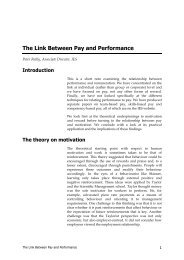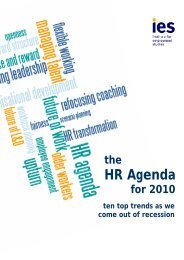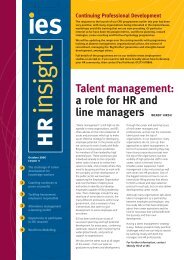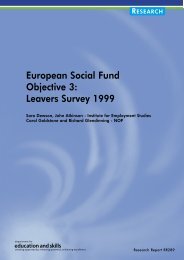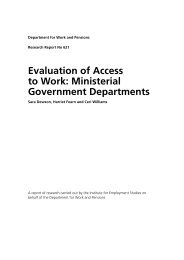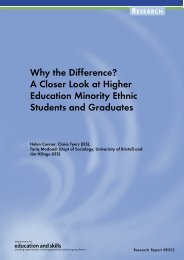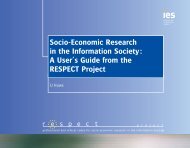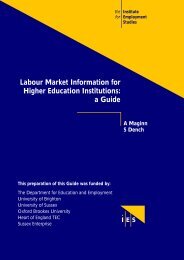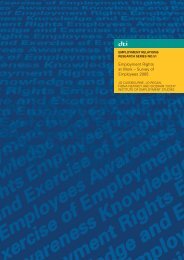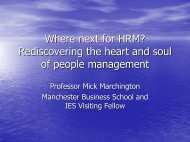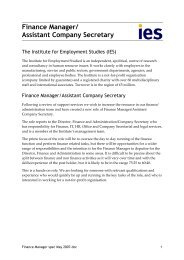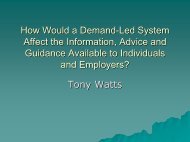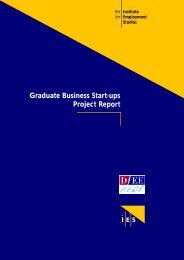Post-16 Transitions: a Longitudinal Study of Young People with ...
Post-16 Transitions: a Longitudinal Study of Young People with ...
Post-16 Transitions: a Longitudinal Study of Young People with ...
Create successful ePaper yourself
Turn your PDF publications into a flip-book with our unique Google optimized e-Paper software.
Table 4.12: Reasons why Year 11 discussion <strong>with</strong> Careers Service/Connexions was<br />
unhelpful<br />
N = %<br />
Did not provide the right sort <strong>of</strong> information 105 32<br />
Did not provide enough information 88 27<br />
Did not help <strong>with</strong> making decisions 69 21<br />
Did not explain the full range <strong>of</strong> options available 68 20<br />
Confusing 62 19<br />
Not enough planning for other support 24 7<br />
<strong>Young</strong> person had already made decisions <strong>16</strong> 5<br />
Tried to make young person do something they did not want to do 14 4<br />
Did not listen/take young person seriously 9 3<br />
Other 65 19<br />
Don't know/ can't remember 23 6<br />
Note: All percentages are weighted percentages, unless otherwise stated<br />
Source: IES/MORI 2003<br />
were observed between Careers Service areas and Connexions<br />
partnership areas.<br />
4.4 Preparation and support for post-<strong>16</strong> transitions<br />
<strong>Young</strong> people taking part in the Wave 2 survey were asked to<br />
comment more generally about their transition from<br />
(compulsory) schooling to their subsequent activities.<br />
Importantly, the survey sought to determine, according to<br />
young people themselves, who had helped them to make such<br />
a transition, who had been most helpful, and why.<br />
Table 4.13 shows clearly that parents/carers are most<br />
commonly engaged in helping young people to prepare for<br />
their post-<strong>16</strong> activity. Sixty-six per cent <strong>of</strong> all young people<br />
said their parents had helped them to prepare for what they<br />
would do after Year 11. Approximately one-third <strong>of</strong> young<br />
people cited school staff and/or the school careers adviser as<br />
helping in their transition whilst one-fifth <strong>of</strong> young people<br />
surveyed said that the Careers Service or a Connexions<br />
personal adviser had helped them to prepare for their post-<strong>16</strong><br />
transition. Interestingly, young people in Connexions areas<br />
were more likely to mention receiving formal careers help (27<br />
per cent) than those in non-Connexions areas (18 per cent).<br />
SENCOs were mentioned by only 13 per cent <strong>of</strong> young people<br />
as having helped them to prepare for what they would do<br />
after Year 11.<br />
40 <strong>Post</strong>-<strong>16</strong> <strong>Transitions</strong> <strong>of</strong> <strong>Young</strong> <strong>People</strong> <strong>with</strong> SEN: Wave 2



